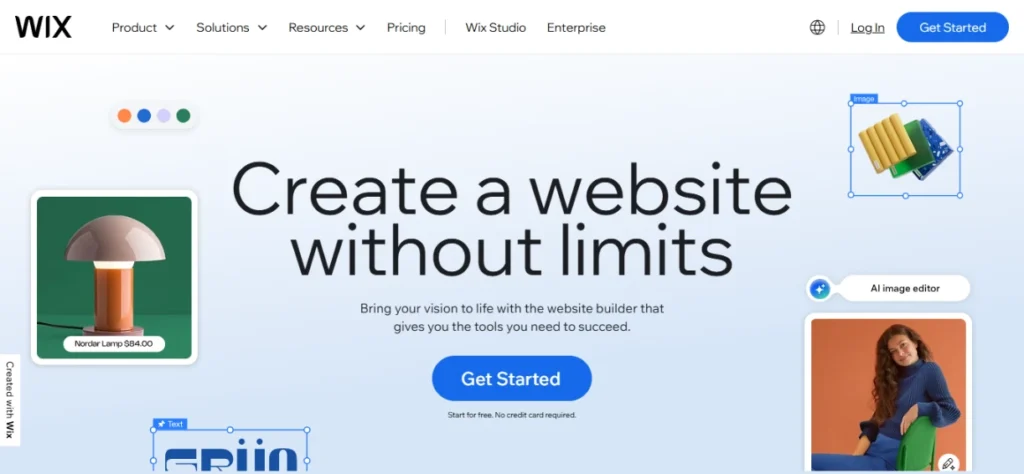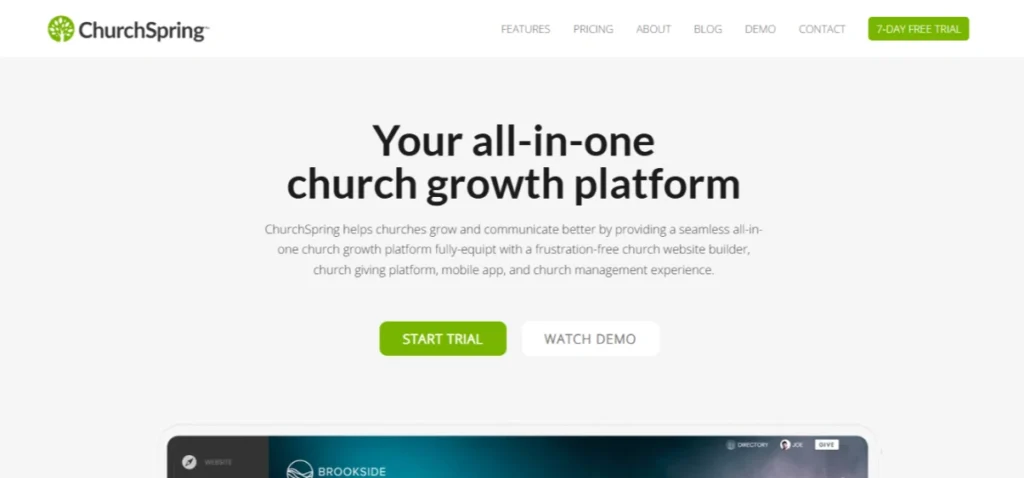If you don’t have a lot of technical skills, building your church’s website may seem overwhelming. But using the right tools, you can build a professional and functional site without any coding experience. Your church website not only enhances the digital image of your church, but it also aids in contacting, offering sermons, announcing events and donation opportunities.
Good thing is that many website builders today can be used by people who are oblivious to web development or design. These are the simple drag and drop features that have made a website easy to create for anyone. In this article, let’s try to understand some of the best church website builders aimed at non-tech savvy users.
Quick Navigation ↓
1. Wix: User-Friendly and Customizable

Wix is one of the most well-known website builders on the market. What makes Wix stand out is its drag-and-drop interface that allows you to build a website without touching a line of code. It’s designed for beginners, so you can easily create a church website by choosing from hundreds of pre-made templates and customizing them to suit your church’s needs.
For churches, Wix offers a variety of templates specifically designed for ministries. These templates come with features like sermon embedding, event management, donation systems, and more. Wix also offers a free plan, making it a great option if you’re on a budget, though paid plans provide access to more advanced features like a custom domain name and additional storage.
One of the advantages of using Wix is its ease of use. Even those with no experience in website design can create a professional-looking site in a few hours. The platform also has an App Market where you can find integrations to help with specific needs, like connecting to your church’s social media accounts, adding a blog, or setting up a prayer request form.
2. Squarespace: Elegant Templates for Churches

If you want a visually appealing website with minimal effort, Squarespace is a fantastic option. Known for its stylish and modern templates, Squarespace allows you to create a beautiful website that reflects your church’s values. The platform is intuitive, offering drag-and-drop functionality, making it easy for non-tech-savvy users to get started.
Squarespace provides several church-specific templates with features like sermon management, event calendars, and donation forms. The platform also includes a blogging feature, so you can easily share updates, sermon notes, or community stories with your congregation.
The advantage of Squarespace is that it gives your church website a polished, professional look without the need for a designer. The templates are responsive, which means your site will look great on any device, from smartphones to desktops. While Squarespace is easy to use, it also provides room for growth with customization options for when you become more comfortable with web design.
3. Weebly: Simple and Affordable

Weebly is another website builder that caters to beginners with a straightforward, drag-and-drop interface. With its easy setup, Weebly is an ideal platform for churches looking to create a website without investing too much time or money. It provides simple tools to help you design and manage your site with ease.
Weebly offers various templates for churches and ministries that can be customized to meet your needs. Whether you’re looking to add sermon content, promote events, or set up a donation page, Weebly has all the basic features you’ll need. It’s an affordable option for smaller churches that may not have a large budget for web development.
The platform also includes a mobile app that allows you to make updates to your church website on the go. For non-tech-savvy users, Weebly’s simplicity is one of its biggest strengths—everything from adding pages to inserting multimedia is incredibly intuitive.
4. WordPress with Elementor: Flexibility for Growing Churches

WordPress is one of the most powerful website platforms available, and with the Elementor page builder plugin, it’s also user-friendly for beginners. WordPress powers a significant portion of the web, and its flexibility makes it a great choice for churches that expect their website to grow over time.
Elementor allows you to build custom pages using a drag-and-drop editor, which simplifies the design process. WordPress also offers numerous plugins specifically for churches, such as sermon management systems, event scheduling tools, and donation integrations.
While WordPress is more flexible than other platforms like Wix and Squarespace, it can require a bit of a learning curve. However, once you get the hang of it, WordPress allows you to create a highly customizable website with features that suit your church’s needs.
If you want to expand your church’s online presence with additional features like a member portal or a resource library, WordPress gives you the freedom to do so.
5. ChurchSpring: Built for Churches, By Churches

For those who want a platform specifically built for churches, ChurchSpring is an excellent choice. ChurchSpring is a website builder designed with ministries in mind, offering templates and features that cater directly to church needs. Whether you need a prayer request form, a sermon library, or a volunteer sign-up sheet, ChurchSpring includes all the tools you need to run a church website effectively.
The best part about ChurchSpring is that it’s built by people who understand the unique needs of churches. The platform is simple to use, even for beginners, and provides excellent customer support to guide you through the website-building process. ChurchSpring’s templates are modern, mobile-responsive, and customizable, ensuring your church’s website looks great on all devices.
Additionally, ChurchSpring offers integrated tools like online giving, event management, and sermon archiving, making it a one-stop-shop for building your church’s digital presence. It’s an all-in-one platform that removes the need for third-party integrations, making it especially useful for non-tech-savvy users.
Final Thoughts: A Personal Journey
Building a website for your church is more than just a technical task; it’s about creating a space where your community can connect, share, and grow. It’s an extension of your ministry that reaches people both near and far, especially in today’s world where digital presence is essential. While it can seem overwhelming at first, there are many user-friendly website builders available to make the process easier.
You don’t need to be a web expert to build a great website for your church. Platforms like Wix, Squarespace, Weebly, WordPress, and ChurchSpring are all designed with simplicity in mind, allowing you to focus on what matters most: serving your congregation.
If you’re ready to take your church’s online presence to the next level, WebiKnock can help. We specialize in building websites for churches and ministries, ensuring your site is both user-friendly and effective. From design to SEO and digital marketing, we’re here to support you every step of the way in building a website that reflects your church’s mission. Let us help you share your message with the world, one click at a time.








